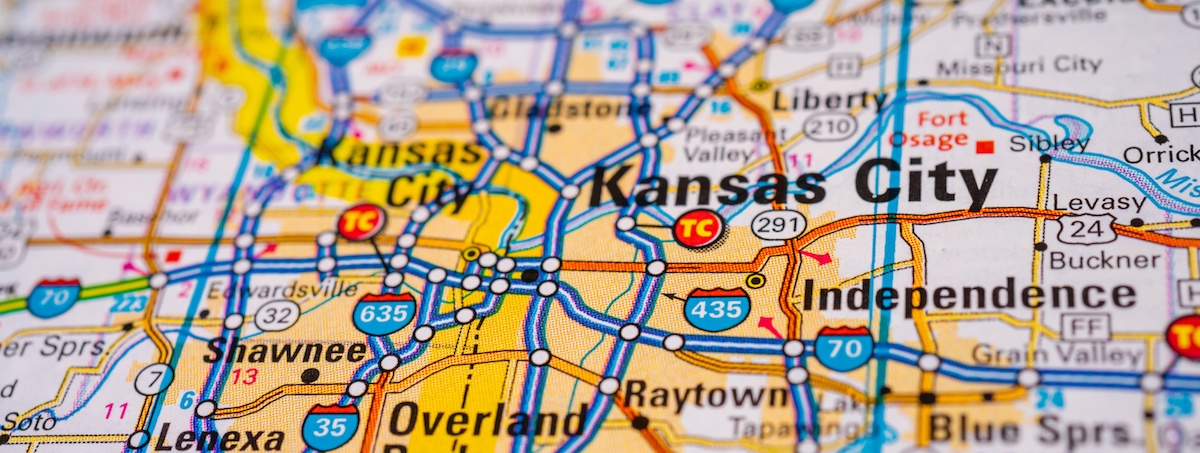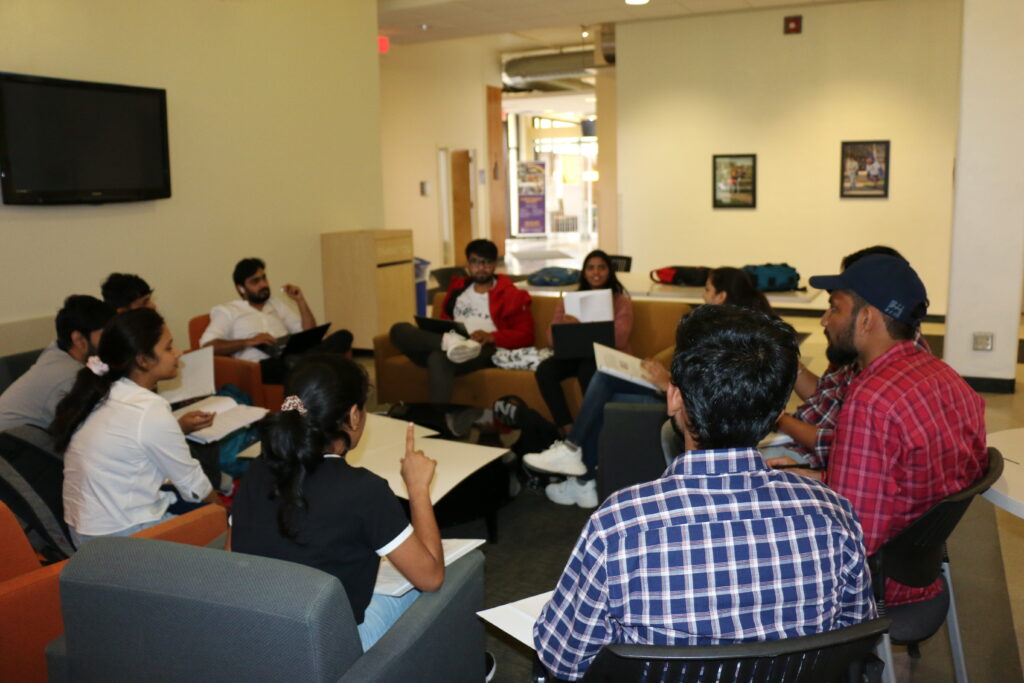

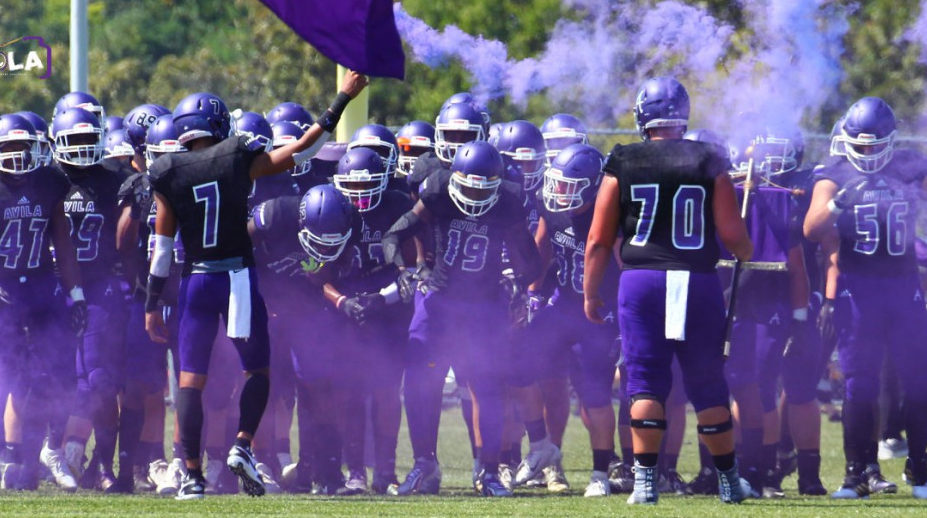
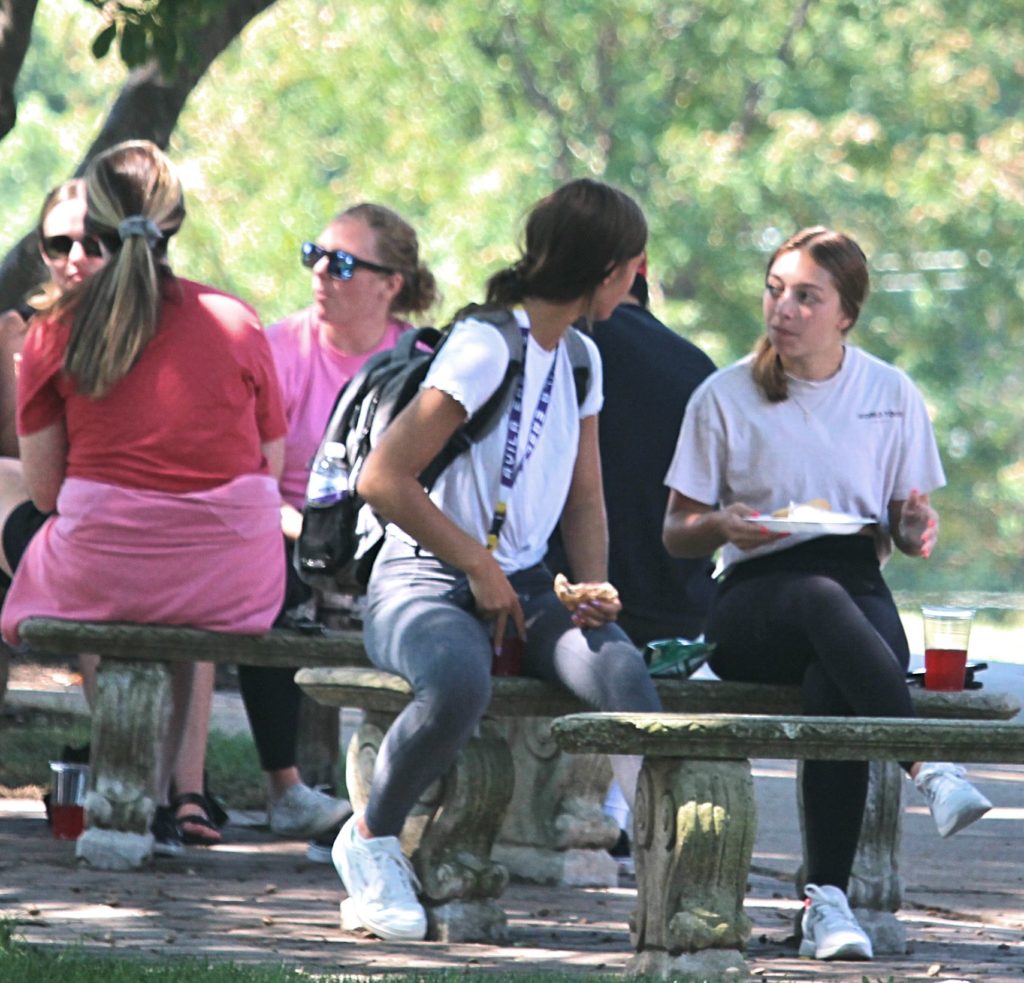
5 Reasons to Consider College in the United States
So you’re thinking about university, and you’re unsure about studying overseas. Staying close to home is an option, but the added adventure of going to college in another country is a once-in-a-lifetime experience. Check out some of the things that make studying in the United States so cool.
The United States has some of the best colleges and universities in the world. If you’re looking for a top-notch education, American colleges and universities are so highly regarded because of the quality of their education. Professors at American institutions are some of the best in their field, and they’re constantly conducting ground-breaking research. Additionally, American schools offer a wide variety of degree programs, so you’re sure to find one perfect for your interests and goals.
One of the great things about attending college in the United States is the diversity of the student body. Every year, millions of students from all over the world choose to study in the United States. They come for many reasons: to learn English, to experience American culture, to get a degree from a top-ranked university, or to take advantage of the abundant opportunities that the United States has to offer. But one of the things that make American colleges and universities so great is the diversity of their students. Students come from all over the world to study in the United States, bringing a wealth of different cultures and perspectives. This diversity enriches the learning experience for everyone involved.
After graduation, you’ll have access to one of the world’s largest job markets and an unparalleled network of employers when you start your job search. American companies are always looking for talented and ambitious employees, and they’re willing to pay top dollar for them. In fact, according to data from the Bureau of Labor Statistics, graduates from American colleges and universities earn an average salary that’s nearly twice as high as their counterparts in other countries.
Attending college in the United States is a great opportunity to experience life in another country. You’ll get to learn about a new culture and way of life, and if you choose wisely, you’ll end up with some lifelong friends from your time abroad. When you study in the United States, you’ll have the chance to experience American culture firsthand. From cheering on a college football team at a game to participating in a traditional Thanksgiving dinner, there are countless ways to immerse yourself in American culture while you’re here. And, of course, you’ll also have the opportunity to explore all that America has to offer, from its bustling cities to its stunning national parks.
Last but not least, college is supposed to be fun! In addition to getting a great education, you’ll also have access to all sorts of extracurricular activities, from campus clubs to sporting events. There’s something for everyone in the United States, so whatever your interests, you’re sure to find something that’s perfect for you. One of the best things about American colleges and universities is the vast array of extracurricular activities that are available. There is something for everyone, whether you’re interested in sports or culture or want to get involved in your community. Getting involved on campus is a great way to make new friends and connections that will last long after you graduate.
There are usually two types of extracurricular activities available on campus: those that are run by the college or university and those that are run by students. College-run activities are usually more formal, while student-run activities tend to be more relaxed. Either way, there’s sure to be something that interests you. Here are just a few examples:
Sports teams: American colleges and universities have competitive sports teams in all kinds of different sports. If you’re a fan of football (soccer), basketball, baseball, or any other sport, there’s sure to be a team that you can join. Just take a look at your school’s website or ask around campus to find out more.
Student organizations: Most schools have dozens, if not hundreds, of student organizations you can join. These include everything from cultural groups to academic clubs to social clubs. Again, just take a look at your school’s website or ask around campus to find out more.
Living in the United States
Whether this is your first time in America or you have traveled here before, there is going to be an adjustment when living in a new place. One of the biggest things to remember is that this transition period will take time, and the amount of time it takes is different for everyone. Whether with language, transportation, your studies, or something else, you will make mistakes; so be sure to give yourself a lot of grace during this season.
Culture in America
It can be hard to describe the culture in America due to its shear size and the micro-cultures that it contains. Though movies and TV shows often lump Americans into a few generalized stereotypes, the culture you experience will be specific to the area that you will be living in. Because you will be living in Kansas City during your time at Avila, we have created a “Living in KC” page that walks through some of the more specifics of KC. Some cultural mindsets and practices include:
American Mindset
- Independence
- Individualism
- Freedom
- Diversity
- Patriotism
- Equality
- Strong Sense of Justice
Common Practices
- Direct and Honest
- Being on time is Important
- Like our Privacy and Personal Space
- Personal Hygiene is a Must
For more detailed information about American Culture, follow this link to Cultural Atlas’s website to learn more.



Culture Shock
The term Culture Shock is used to describe the feelings people have when they are faced with an entirely different cultural or social environment. This is most commonly experienced by people who are living in a foreign country whether short term or long term. These feelings are part of the assimilation process and are perfectly normal, but this doesn’t make them easier to deal with. Experts who have studied this transitional period have identified four stages that most people going through culture shock will walk through before settling fully into their new culture. These stages don’t have a set timeline, so recognize that for someone one stage may last a week while for others, that same stage will last months.
Similar to how we feel when friendships and other relationships are first formed, the honeymoon stage is the stage where everything seems exciting and nothing is wrong. The newness of all the differences in language, culture, behaviors, values, etc. doesn’t feel wrong, but thrilling. Everything is overwhelmingly positive and nothing seems like it could go wrong.
This stage is often considered the most difficult, because the side effects that you can have during culture shock are experience the heaviest in this stage. This stage can be described simply as the opposite of the honeymoon stage. Where in the honeymoon stage everything is great and nothing is bad; in the frustration stage, nothing is great and everything is bad. This can feel even more defeating because what you found so great now seems horrible. The food no longer tastes good, but can even make you feel sick. The language is no longer something exciting to navigate, but frustrating because there is little communication that is understood or clear, etc.
Common side effects of culture shock will usually appear and be felt the most in this stage. These are, but are not limited to:
-
-
- Fatigue and exhaustion
- Stomach aches, diarrhea or constipation
- Headaches and other aches and pains
- Inability to sleep
- Feeling homesick, sad, or lonely
- Being irritable and angry
- Withdrawing from social events, friends, and other community
- Feeling vulnerable, helpless, and having loss in confidence
- Sleeping and crying a lot, not wanting to get out of bed
- Not wanting to speak English or do any “American” things, but solely wanting to do things from your home country
-
After a lot of hard emotions and likely even some physical struggles, you will then reach the adjustment stage. Unfortunately the adjustment stage doesn’t mean that you get to go back to the honeymoon stage where everything is now amazing again, and often this stage still means that you will continue to wrestle with some of the symptoms listed above; however, it does mean that the end is in sight and these symptoms will get fewer and less extreme from here on out. This stage is characterized by a sense that things are starting to get easier, or you may even feel as though things are simply starting to feel like a sense of your new normal. Though you may not be thrilled that you culturally have to be on time to events, you find yourself starting to show up on time without having to force yourself to do so. Though you still would like to speak in your home language, English is becoming easier to understand, etc.
A huge factor that determined this stage’s success is a now established community and support. The sooner you find this, the faster most people move to the adjustment and then the acceptance stages.
After pushing through some of these struggles and giving yourself time, you will find yourself at the final stage in the process. It is important to know that the acceptance stage still doesn’t mean that you will go back to stage one and find everything around you seems wonderful, but what it does mean is that the differences now aren’t going to bring you down like they did in stage two. When thinking in terms of understanding, acceptance doesn’t mean that you completely understand the language, culture, etc., but it means that now you know that you don’t have to have complete understanding to function, thrive, and enjoy your time in this new place.
Tips for Adjusting
In order to Adjust well to a new culture, you have to keep in mind that adjusting takes a wholistic effort on your part. You can’t just focus on one aspect of adjusting and hope to be as good as new, you have to work on all fronts. Below are some suggestions that you can use, and we suggest taking one or two suggestions from each category and applying them that way you know you are adjusting holistically.
If you are religious, maintaining a healthy spiritual routine will be something that can help during the adjustment period drastically. One of the most important factor in your success as you work through culture shock is community. Students that have community may still struggle, but find themselves feeling significantly more capable of taking new things when they know they have people backing them.
Physical Adjusting

No matter what kind of exercise you prefer: running, weight lifting, playing a sport, climbing a tree, etc. Find some way to stay active. When you do this, you are not only helping your body get bigger muscles, but helping your body stay healthy as a whole. This will help protect your body from sickness as well.
This could be listed as both a physical and a mental tip, but regardless, you have to get outside. Studies have shown that we are not physically or mentally as strong when we stay inside all day every day as when we are able to be outside. Kansas City offers a large variety of parks and other activities that you can do outside. We even have outdoor shopping centers if that will get you outside, then go shopping!
Mental Adjusting

As you adjust, it can be hard because it feels like often times you don’t know what to expect. To help with this make a calendar and find a healthy routine. Mark down your classes, study times, work schedule, and anything else in your week that you know you have to do and when you have to do it. This will help you establish a routine so that you have a good idea of what to expect going into your day so you don’t have to feel off guard.
This may seem contradictory to the last tip, but it isn’t. This doesn’t mean to break your routine regularly, or to try to break your routine, but it does mean that you should give yourself wiggle room and grace in that routine. Other than requirements like class and work, be okay with putting your laundry or studies off for an hour so that you can go be with your friends; this will create a healthy balance and allow you to focus more on the task at hand when you get back
What we mean by finding your safe place is not necessarily finding a space that you are physically safe. The hope is for you to always be physically safe wherever you go. This space should focus on where you can feel like you can fully relax. It is somewhere that you can go no matter what you are feeling. Whether you are sad for being home sick, angry because the culture is so different from where you come from, etc. Find somewhere that you can get away and relax, decompress, and take a pause. Examples could be a park, library, friend’s dorm, trusted faculty’s office, etc.
Your Why should be what you can use to encourage yourself when culture shock and other things get difficult. You may simply be here to get an education, and if that is your sole purpose, then there is nothing wrong with that, remind yourself why you want an education. Maybe you are the first person in your family to get an education and you want to help them out after you graduate. Remind yourself of these things to give yourself the motivation to keep going.
Spiritual Adjusting

Even if you are not religious, meditation is often found to be a pleasant and calming habit to form.
Whether it is reading your religious material, celebrating the holy days, etc. continue to practice a you would at home. This will keep your spiritual stability as some of the other things in your life seem less stable in nature.
making sure you have a group of like minded individuals with you to encourage you in your spirituality is something that can keep you going spiritually even at times when you may not feel like it.
Community
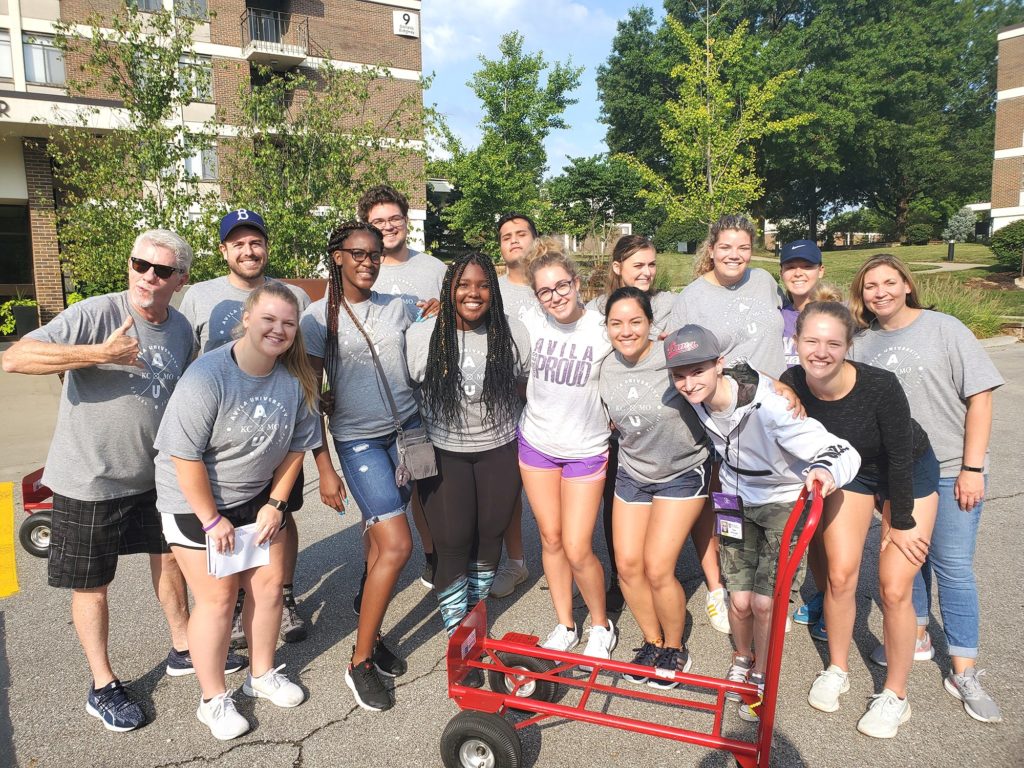
It is our suggestion that you make this group diverse. It is helpful to have people who can relate with you and talk to you about your home culture, so please take advantage of the relationships you can form with the other international students; however, we encourage you to find American friends as well. They will be a great resource to you as you are adjusting to life in the U.S. and can more readily answer any questions for you as they come up.
If you happen to have any family in the area, ask them if you can visit during the weekend or maybe meet with them to share a meal.
Find the people who will be an advocate for you. For starters, the ISS Office are your go to advocates on campus, which includes your DSO’s. If you communicate and are honest with us, we will fight for you. Other advocates may include other faculty, or even connections you may make outside of Avila. Find people who have your back.



Safety
Like any big city, Kansas City has its fair share of criminal activity that you want to be aware of, that way you can always be and feel safe during your time at Avila. You may hear about particular streets or pockets, and there are areas that you may want to avoid; however, we believe that if you simply follow the tips bellow, there is no need for you to worry about your safety while studying in Kansas City.
When it comes to any criminal activity, especially violent crimes, there is always going to be more safety in numbers. When you go out in the city, go with a group of people and not as an individual. If you have to go alone, make sure others know where you’re at and when you are supposed to be back in case of an emergency.
Whether you are in a group or not, it is a good idea to be mindful of how late you are out. We encourage people not to stay out as it gets dark, but we also understand there are activities and events that may make you stay out late. If you are going to be out after dark, be sure to follow the other tips in this list for your safety.
Try not to get lost physically or mentally. Even if you know where you are and where you are going, sometimes we can lose focus and stop paying attention to the things around us. This can be dangerous and lead us to situations that are no longer safe. Be sure to be paying attention of what and who is around you at all times.
Don’t just be mindful for yourself, but also for those you are traveling with. Watch each other’s backs, that way you and everyone in your group is safe.
I’m sure that someone of any gender can defend themselves equally in the case of an emergency; however, if you want to avoid being in an emergency situation altogether, records show that having a male in your group deters criminal activity significantly.
Take the time to get to know the new city that you will be or are living in. Learn the areas that are popular and which ones ought to be avoided. Learn where you can explore freely, and where you need to show caution. Just do your best to learn as much as you can so that you can be as safe as you can.
If you don’t know and you don’t want to try to find out on your own, just ask. The people that will know best are going to be the locals. If you ask, they will share their favorite spots, activities, and more with you; and through this you may even make a new friend.
There are a lot of other tips that could be helpful, but if you use your common sense, you will find that you are going to be just fine. Here are a few more specific tips that are obvious, but need stating.
-
- Make sure your phone is always charged before you go out that way you are never without a way to call for help.
- Don’t flaunt your money. When paying only take out what is needed when you need it, and then be sure to put it away right away.
Don’t leave your things unattended. This is safe in many countries, but not in America. If you leave something unattended, it is likely to get taken.
Laws
You may know how to live according to the laws in your country, but remember that as a F-1 student, you are legally under the authority of the laws of the U.S. government, and these are different than many of the laws that you know in your home Country. Be sure to do your research that way you never find yourself in trouble with the law. Here are a few highlights:
The Legal Drinking age in the U.S. is 21. You may not purchase or consume any alcohol until you are 21 years of age. Once you are 21, you may purchase and drink alcohol, but may not distribute alcohol to anyone less than 21 years of age.
Smoking of any kind is prohibited on campus, as well as, by most government and public buildings, other than in designated smoking areas. No tobacco products may be purchased or used by anyone under the age of 18.
Students wishing to get their driver’s license may do so by meeting with their DSO and then going to their local DMV. Keep in mind that driving laws and signage may also look different here than in your home country, so be sure to learn the distinctions before ever getting on the road to avoid legal trouble.
The possession and use of marijuana is still prohibited by federal law. Although recreational and medical use is allowed by some states, as a F-1 student, you are still held accountable under federal law, making it illegal for you to posses or consume marijuana.
